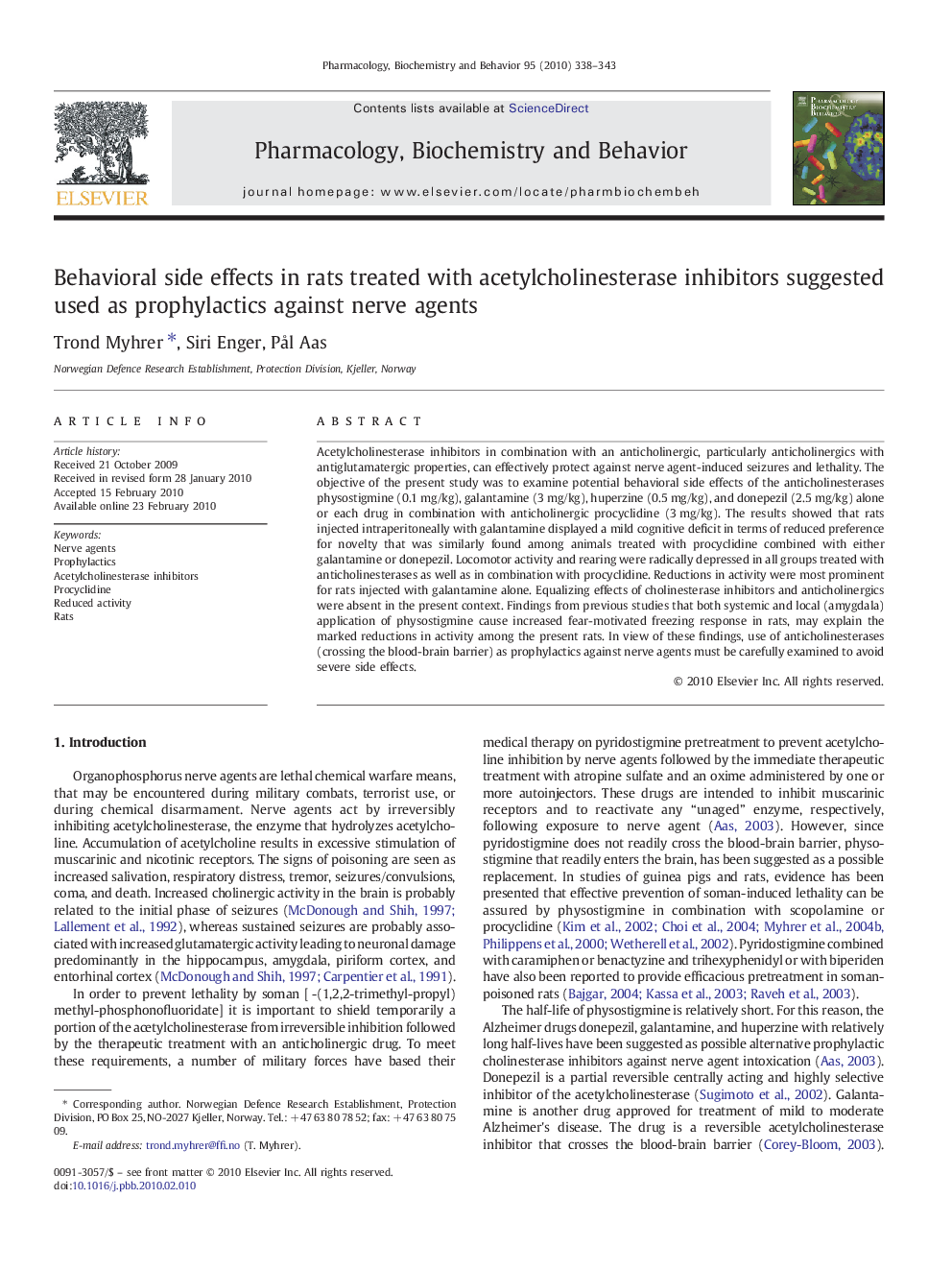| Article ID | Journal | Published Year | Pages | File Type |
|---|---|---|---|---|
| 2013516 | Pharmacology Biochemistry and Behavior | 2010 | 6 Pages |
Acetylcholinesterase inhibitors in combination with an anticholinergic, particularly anticholinergics with antiglutamatergic properties, can effectively protect against nerve agent-induced seizures and lethality. The objective of the present study was to examine potential behavioral side effects of the anticholinesterases physostigmine (0.1 mg/kg), galantamine (3 mg/kg), huperzine (0.5 mg/kg), and donepezil (2.5 mg/kg) alone or each drug in combination with anticholinergic procyclidine (3 mg/kg). The results showed that rats injected intraperitoneally with galantamine displayed a mild cognitive deficit in terms of reduced preference for novelty that was similarly found among animals treated with procyclidine combined with either galantamine or donepezil. Locomotor activity and rearing were radically depressed in all groups treated with anticholinesterases as well as in combination with procyclidine. Reductions in activity were most prominent for rats injected with galantamine alone. Equalizing effects of cholinesterase inhibitors and anticholinergics were absent in the present context. Findings from previous studies that both systemic and local (amygdala) application of physostigmine cause increased fear-motivated freezing response in rats, may explain the marked reductions in activity among the present rats. In view of these findings, use of anticholinesterases (crossing the blood-brain barrier) as prophylactics against nerve agents must be carefully examined to avoid severe side effects.
